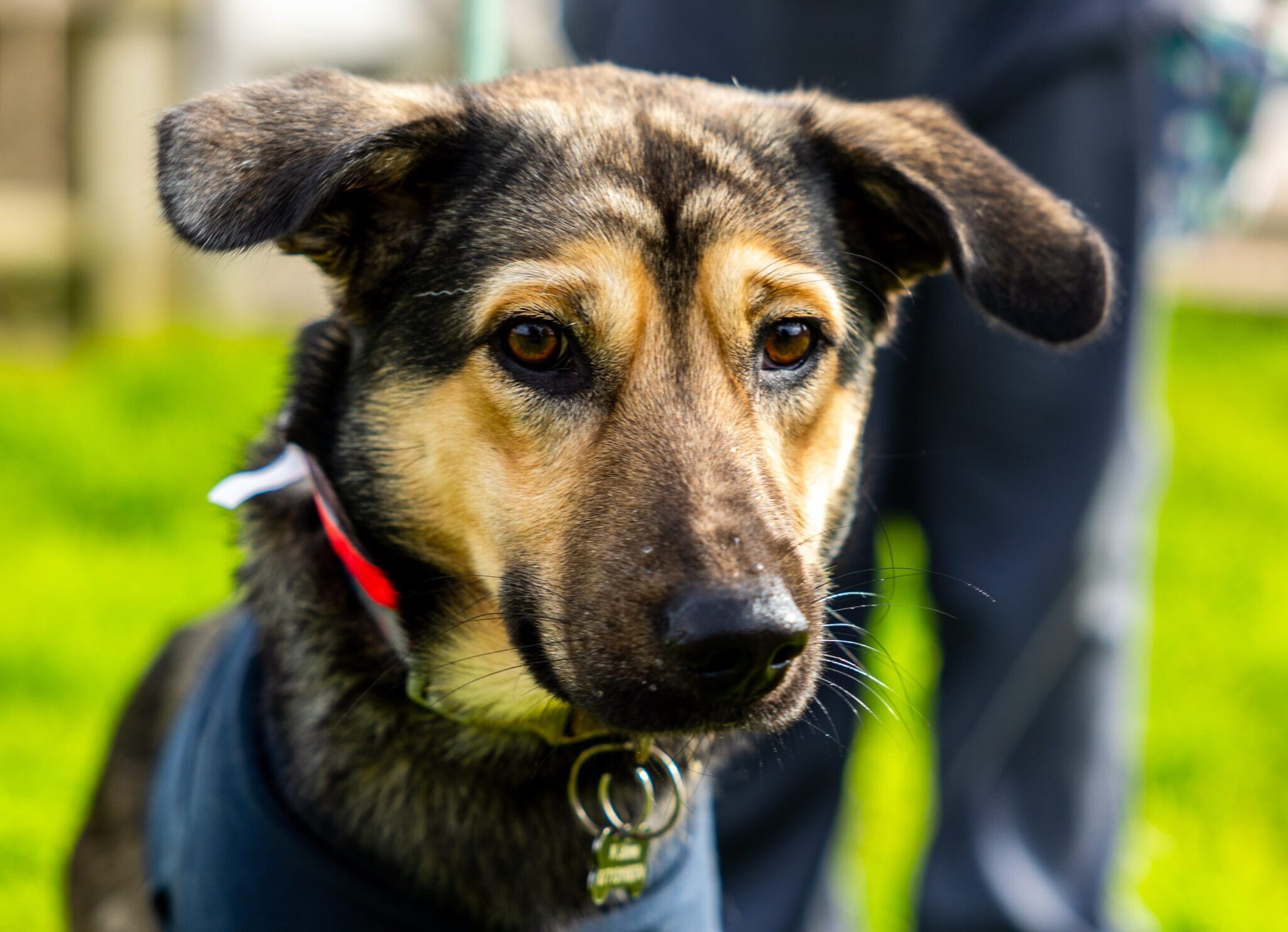Neutering
What is Neutering?
Neutering is a routine procedure that involves removing your furry companion’s sex organs to prevent unwanted pregnancies, pregnancy-related illnesses, and conditions such as testicular, ovarian, and mammary cancers.
The male procedure is called castration, and the female procedure is called spaying.


What to expect?
Before the procedure
- Pre-Surgery Consultation: Before scheduling the surgery, our vet will perform a health check to ensure your pet is fit for anaesthesia and surgery. They may conduct blood tests to assess organ function, especially in older pets.
- Fasting Instructions: We usually advise you to withhold food from your pet for 8-12 hours before surgery. Water is typically allowed up to the time of surgery, but always follow your vet’s specific instructions.
- Arriving at the Practice: On the day of the surgery, you’ll bring your pet at 7:30am. Be prepared to fill out some paperwork and discuss any last-minute questions or concerns with the veterinary team.
During the procedure
-
Anaesthesia: Your pet will be given a pre-anaesthetic medication to relax them, followed by anaesthesia to ensure they are completely unconscious and pain-free during the procedure. They will be closely monitored throughout the surgery.
-
The Surgery Itself:
- For Male Pets (Castration): Our vet will make a small incision near the scrotum to remove the testes. The incision is then closed with sutures.
- For Female Pets (Spaying): The vet will make an incision in the abdomen to remove the ovaries and usually the uterus. The incision is then closed with sutures.
-
Monitoring: Throughout the surgery, your pet’s vital signs (heart rate, breathing, temperature) will be monitored closely by our veterinary team to ensure their safety.
After the procedure
-
Waking Up: After the surgery is complete, your pet will be moved to a recovery area where they will wake up from the anaesthesia. They may be groggy or disoriented for a few hours as the effects of the anaesthesia wear off.
-
Post-Op Instructions: Before you take your pet home, we will give you detailed post-operative care instructions. These will include how to care for the incision site, administer pain medication, and monitor for any signs of complications.
-
Pain Management: Your pet will be sent home with pain relief medication to ensure they are comfortable during recovery. Follow the dosing instructions carefully.
-
Rest and Recovery: Your pet will need a quiet, comfortable place to rest and recover. Activity should be limited to prevent strain on the incision site. For most pets, this means no running, jumping, or rough play for about 10-14 days.
-
Post-Operation Visit: We will schedule a follow-up visit to check on your pet’s healing and remove any sutures if necessary.
Dog Neutering
Male
Benefits
✅ Population control
✅ Prevention of disease
✅ Lower risk of cancer
✅ Reduced unwanted behaviour (Urine marking)
When to neuter?
- Small to Medium Breeds: For small to medium-sized dogs weighing under 50 pounds, neutering is generally advised between 6 to 9 months. At this age, they are mature enough for the procedure with minimal risk, and it can help reduce unwanted behaviors like marking and roaming.
- Large and Giant Breeds: For larger breeds that will weigh over 50 pounds as adults, it is advisable to wait until they are 12 to 18 months old to neuter. These breeds mature more slowly, and postponing neutering can lower the risk of orthopedic issues like hip dysplasia and cruciate ligament tears. Waiting allows their growth plates to close fully, promoting better long-term joint health.
Retained Testicle Surgery
Cryptorchidism, commonly known as a retained testicle, is a condition where one or both testicles do not descend into the scrotum, which can lead to serious complications such as cancer or torsion.
Female
Benefits
✅ Prevents unwanted pregnancies
✅ Eliminates the risk of uterine or ovarian cancer
✅ Less risk of life-threatening infections
✅ Stops seasons
When to neuter?
- Small to Medium Breeds: For small to medium-sized dogs weighing under 50 pounds, spaying is recommended between 6 to 9 months of age. Spaying before the first heat cycle, typically around 6 months, can greatly lower the risk of certain cancers and reproductive health issues.
- Large and Giant Breeds: For larger breeds that will weigh over 50 pounds as adults, it is often advisable to wait until 12 to 18 months of age for spaying. This delay helps ensure that growth plates have closed, which can lower the risk of orthopaedic issues such as hip dysplasia. However, it is important to consider the increased risk of mammary tumours if spaying is postponed beyond the first or second heat cycle.
Laparoscopic Spay
A laparoscopic spay or neuter offers a modern alternative to traditional surgical methods, featuring reduced invasiveness and promoting quicker recovery for your pet.
Cat Neutering
Male
Benefits
✅ Population control
✅ Prevention of disease
✅ Lower risk of cancer
✅ Reduced roaming and fighting
✅ Reduces spraying
When to neuter?
- General Recommendation: We recommend neutering male cats around 5 to 6 months of age. By this time, your cat has typically reached sexual maturity, and neutering can help prevent the onset of behaviours associated with mating instincts, such as spraying and aggression.
Retained Testicle Surgery
Cryptorchidism, commonly known as a retained testicle, is a condition where one or both testicles do not descend into the scrotum, which can lead to serious complications such as cancer or torsion.
Female
Benefits
✅ Prevents unwanted pregnancies
✅ Eliminates the risk of uterine or ovarian cancer
✅ Less risk of life-threatening infections
✅ Stops seasons
✅ Improves socialisation
When to neuter?
General Recommendation: We recommend spaying female cats around 5 to 6 months of age. This timing allows the procedure to be performed before your cat’s first heat cycle, which typically occurs around 6 months of age. Spaying before the first heat offers the greatest health benefits, including a significant reduction in the risk of mammary tumors.
Laparoscopic Spay
A laparoscopic spay or neuter offers a modern alternative to traditional surgical methods, featuring reduced invasiveness and promoting quicker recovery for your pet.

Rabbit Neutering
Male
Benefits
✅ Population control
✅ Prevention of disease
✅ Lower risk of cancer
✅ Reduced unwanted behaviour (Aggressiveness)
✅ Improves socialisation
When to neuter?
- General Recommendation:: Male rabbits are typically neutered between 4 to 6 months of age. By this time, they have usually reached sexual maturity, which is when their testicles have descended and they start exhibiting behaviors related to mating.
Female
Benefits
✅ Prevents unwanted pregnancies
✅ Eliminates the risk of uterine or ovarian cancer
✅ Less risk of life-threatening infections
✅ Stops seasons
✅ Improves socialisation
When to neuter?
General Recommendation: We recommend spaying female cats around 5 to 6 months of age. This timing allows the procedure to be performed before your cat’s first heat cycle, which typically occurs around 6 months of age. Spaying before the first heat offers the greatest health benefits, including a significant reduction in the risk of mammary tumors.
FAQ
Is neutering painful for my pet?
Neutering is performed under general anaesthesia, so your pet will not feel pain during the procedure. Post-operative discomfort is usually mild and can be managed with pain relief prescribed by our vet.
Will neutering change my pet’s personality?
Neutering typically results in a calmer pet, but it won’t drastically change their personality. Most pets become less aggressive and more focused on their human companions.
Are there risks associated with neutering?
Neutering is a routine and generally safe procedure, but as with any surgery, there are risks. Our vet can discuss these with you and address any concerns you may have.

Book an Appointment:
Neutering your pet is a crucial step in ensuring their health, happiness, and well-being. Don’t wait—schedule an appointment with your veterinarian today to discuss the best timing and care for your pet.

